What Four Skill Domains Do Educators Need for Learner-Centered Teaching?
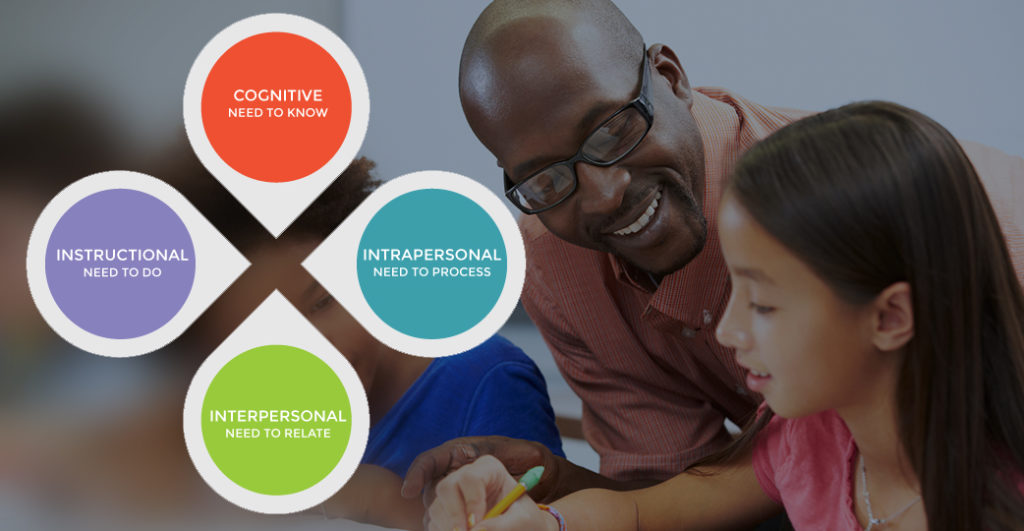
Gone is the default image of a teacher—an adult lecturing to students seated neatly in rows, assigning the same textbook pages to everyone, and administering the same quiz on the same day to the entire class. Instead, teachers in personalized, learner-centered settings are called upon to assess and address individual student needs and help all… Read More ›
Student Agency: Creating An Integrated and Authentic K-12 Approach
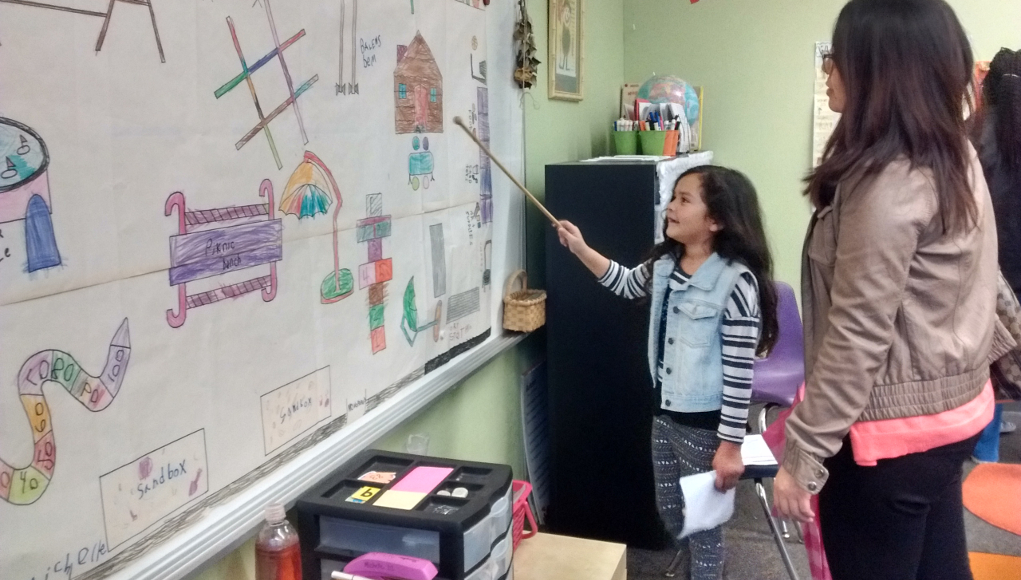
This article explores authentic student agency, using California’s Aveson Charter Schools, where the author is founder, to show it in action. It emphasizes the critical role of student agency in a competency-based learning model. The author discusses a number of research-backed practices used at Aveson: The development of foundational or noncognitive skills such as relationship building and self-regulation.… Read More ›
Sixth Annual Boston EdTalk
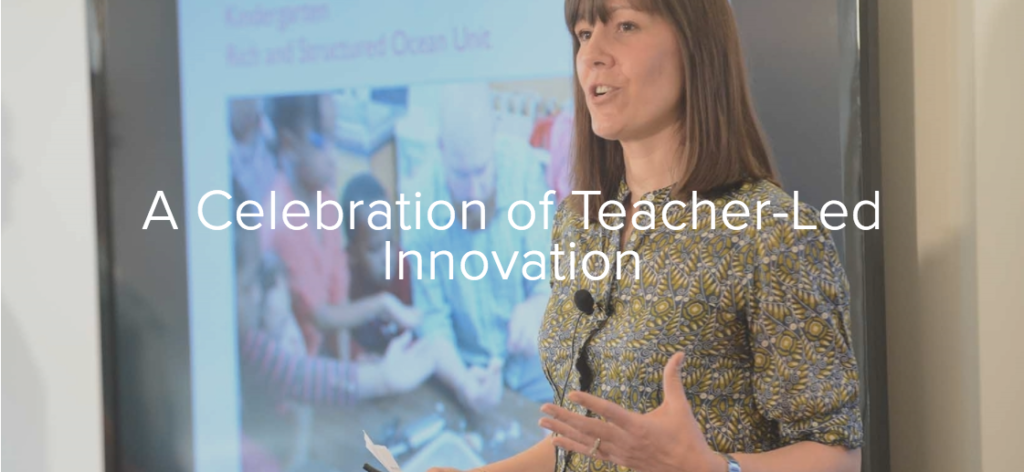
Boston EdTalks is a celebration of innovation in education that brings educators and leaders from across the city of Boston together during Teacher Appreciation Week to share their unique ideas and innovative classroom practices. The event will include five 10-minute presentations by local teachers. Three of the Nellie Mae Education Foundation Speaker’s Bureau members, Lissette Castillo, Sunny Pai,… Read More ›
Notes From the Field: Starting With the “Why” in Personalized Learning
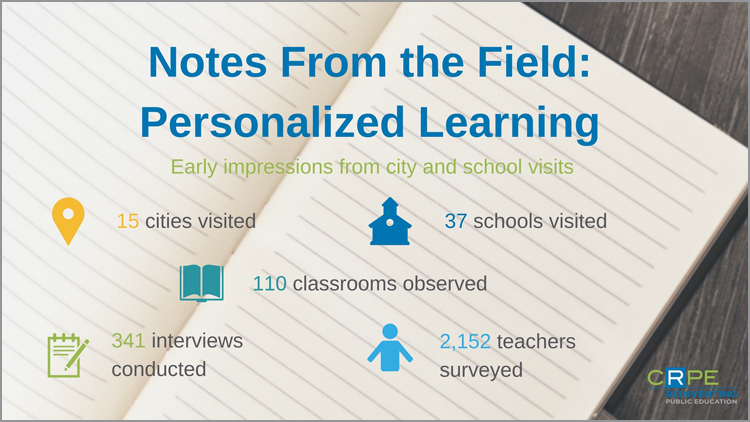
This is the fifth installment in the Notes from the Field blog series, originally posted on April 12, 2017 by The Center for Reinventing Public Education (CRPE). Last spring, on our first visit to 35 schools committed to personalized learning, teachers often told us they weren’t sure what they were supposed to be doing to personalize… Read More ›
Growing Into The Framework: A District’s CBE Implementation Strategy
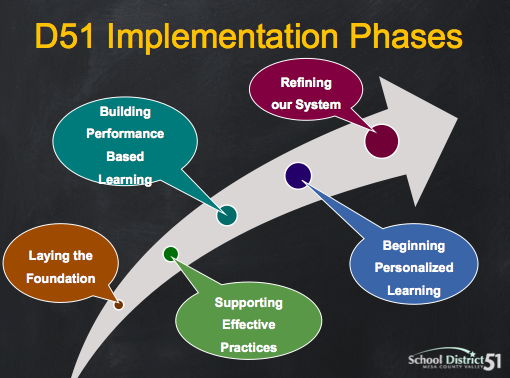
This article shares five phases of implementation of competency-based education, using the Mesa County Valley School District 51‘s (D51) first year of implementation to illustrate the process. The phases include: Laying the foundation Supporting effective practices Building performance-based system Beginning personalized learning Refining our system Information tables include detailed steps to achieve the phase and outline what needs… Read More ›
Examining Cultural Relevance
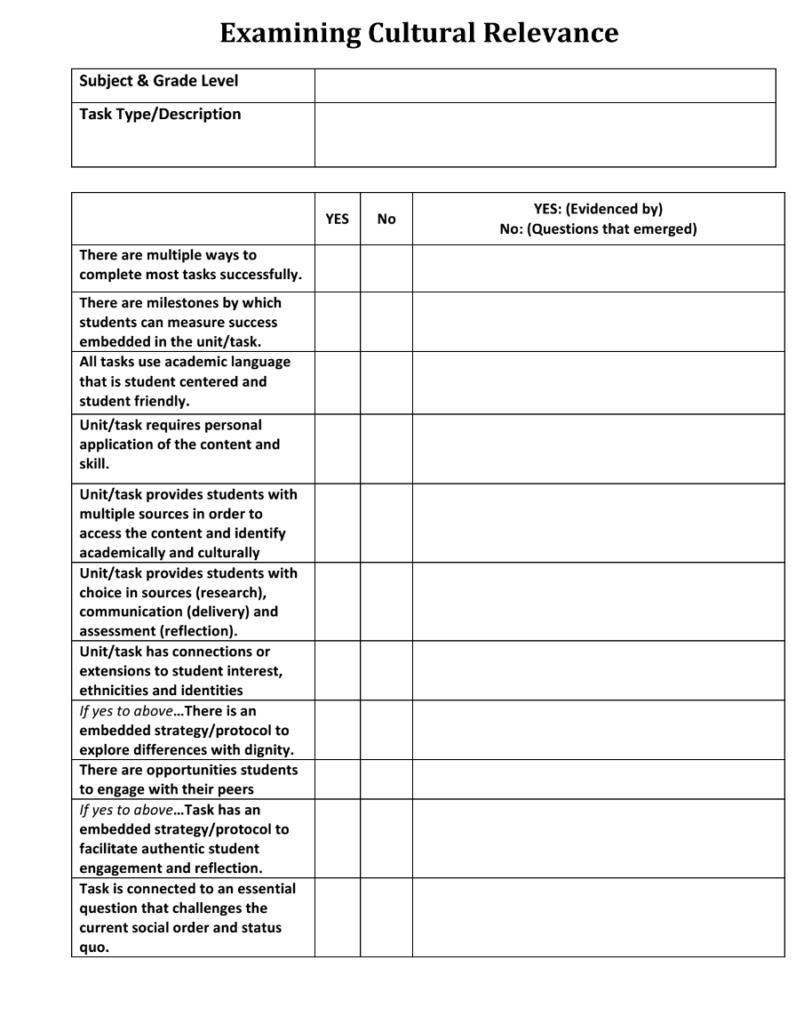
This one page tool provides a set of questions to determine the cultural relevance of a given unit, learning task, or project. Many of the strategies for infusing cultural relevance focus on student-centered practices such as inclusion of choice in topics, sources for information, and ways of displaying knowledge learned as well as connection to… Read More ›
Models of Excellence
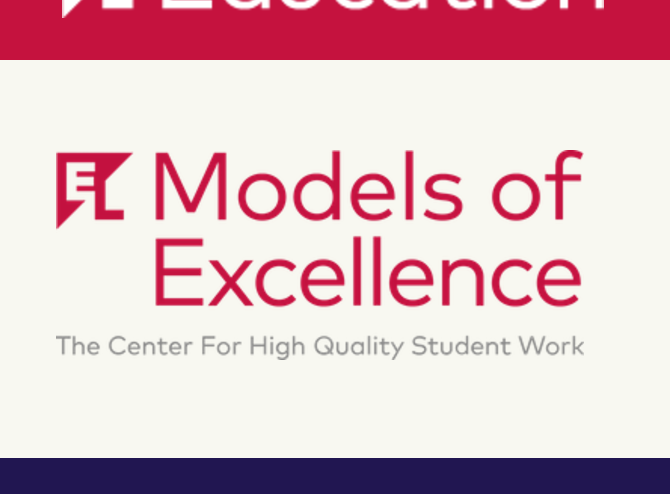
Models of Excellence is an open resource featuring exemplary pre-K to 12th-grade student work. The collection is curated by EL Education, a collaboration between The Harvard Graduate School of Education and Outward Bound USA, whose mission is to support teachers. The website showcases interdisciplinary projects produced by students around the country. Projects can be searched… Read More ›
Conceptualizing and Designing Work-Based Learning

The Pathways to Prosperity Network is launching a three-part webinar series exploring work-based learning (WBL). This national network brings together state and regional partners dedicated to connecting K-12 with employers to rethink the way we prepare students for career success. The first webinar in their WBL series will provide an introduction to work-based learning (WBL) and the benefits… Read More ›
Cutting Through the Confusion of Individualized Learning
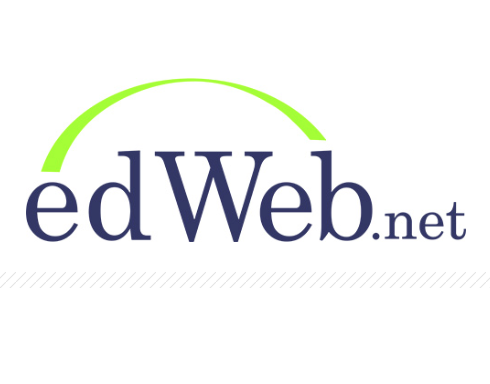
Individualized learning is one of the major areas of concentration within personalized learning and requires significant changes to school as we know it, moving from a seat-time model to one focused on true competency. In this introduction to individualized learning, Gene Kerns, Ed.D. will address the following questions: What are the three major components of… Read More ›
Equity Snapshot: The Intersection of Mastery & Culturally Responsive Education
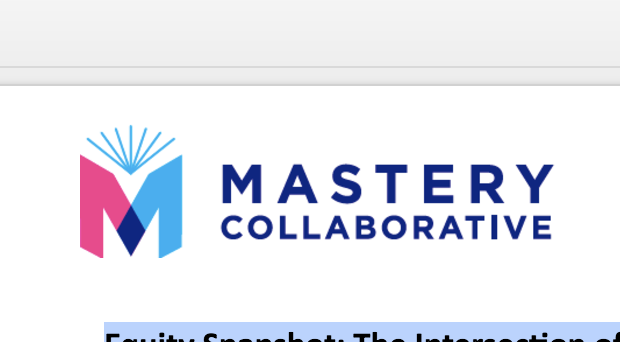
This working brief looks at the intersection between culturally responsive education (CRE) and competency education. It was developed by the Mastery Collaborative (MC), a group of over 40 New York City schools committed to mastery-based education. In their second year, the community of practitioners focused on the development of equity and CRE as core values. Read more about… Read More ›
The ‘Minecraft Effect’? Educators Hope to Move Students From VR Consumption to Creation
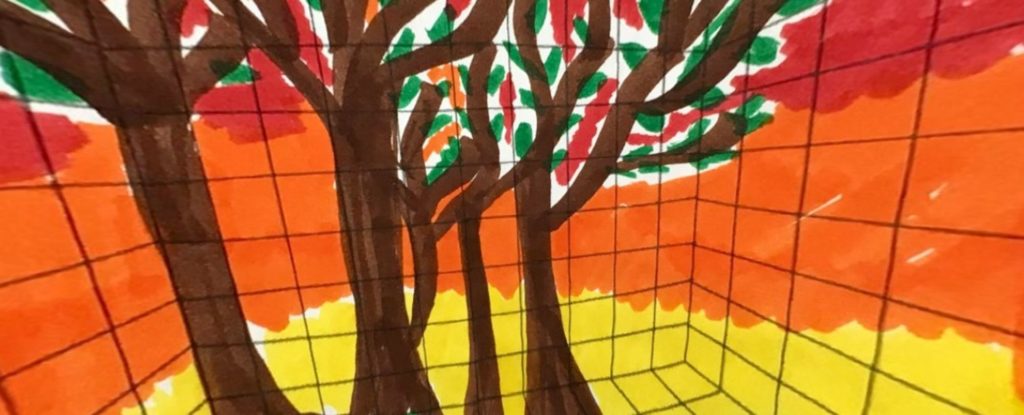
This short article shares ideas about where the future of augmented and virtual reality (AR/VR) might be heading. Using his observations from presentations and exhibitions at SXSWedu, the author makes the claim that new AR/VR technologies may become more immersive for students, creating classrooms and lessons where students take the lead rather than just “consuming the… Read More ›
3 Ways to Implement Blended Learning In The Classroom
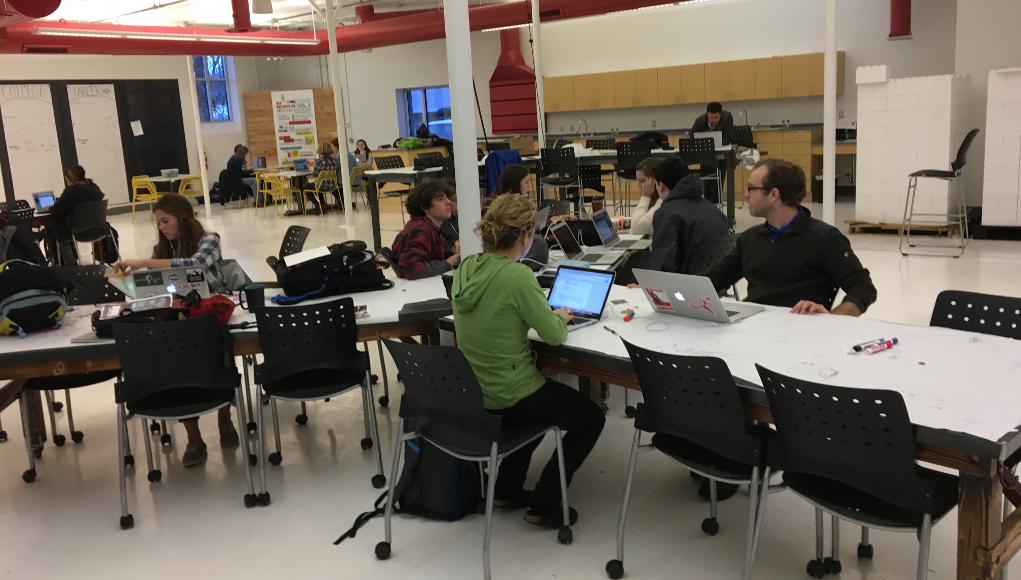
This article, written by a classroom teacher, explores different ways to use technology to “blend” learning. The technology tools she shares can be used to create innovative learning experiences beyond the school day and open up time and space for deeper learning in the classroom. Topics include game-based learning and technology-based alternatives to homework. She provides tips to… Read More ›